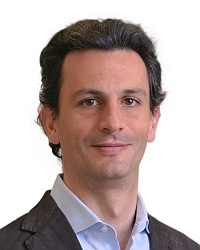TR2019-069
Particle Filtering for Automotive: A survey
-
- , "Particle Filtering for Automotive: A survey", International Conference on Information Fusion (FUSION), July 2019, pp. 1-8.BibTeX TR2019-069 PDF
- @inproceedings{Berntorp2019jul,
- author = {Berntorp, Karl and {Di Cairano}, Stefano},
- title = {{Particle Filtering for Automotive: A survey}},
- booktitle = {22th International Conference on Information Fusion},
- year = 2019,
- pages = {1--8},
- month = jul,
- isbn = {978-0-9964527-8-6},
- url = {https://www.merl.com/publications/TR2019-069}
- }
- , "Particle Filtering for Automotive: A survey", International Conference on Information Fusion (FUSION), July 2019, pp. 1-8.
-
MERL Contact:
-
Research Area:
Abstract:
Since its introduction more than two decades ago,the particle filter has become an established technique for nonlinear state estimation, due to its capability to cope with severe nonlinearities and non-Gaussian noise. More recently, there has also been rapid development in particle filtering for learning, either for real-time estimation of unknown parameters in the system, or for offline system identification. Due to the increased flexibility the particle filter has been applied in such diverse areas as meteorology, medical imaging, video analysis, robotics, self-driving cars, and aerial vehicles. In this paper, we survey particle filters in vehicle applications, with particular focus on autonomous vehicles. We describe the particle filter and its relation to marginalization and conjugate priors, which are key enablers in several important applications. Based on our own research, we present three recent use cases of particle filtering in the automotive industry and give an outlook on potential research directions.
